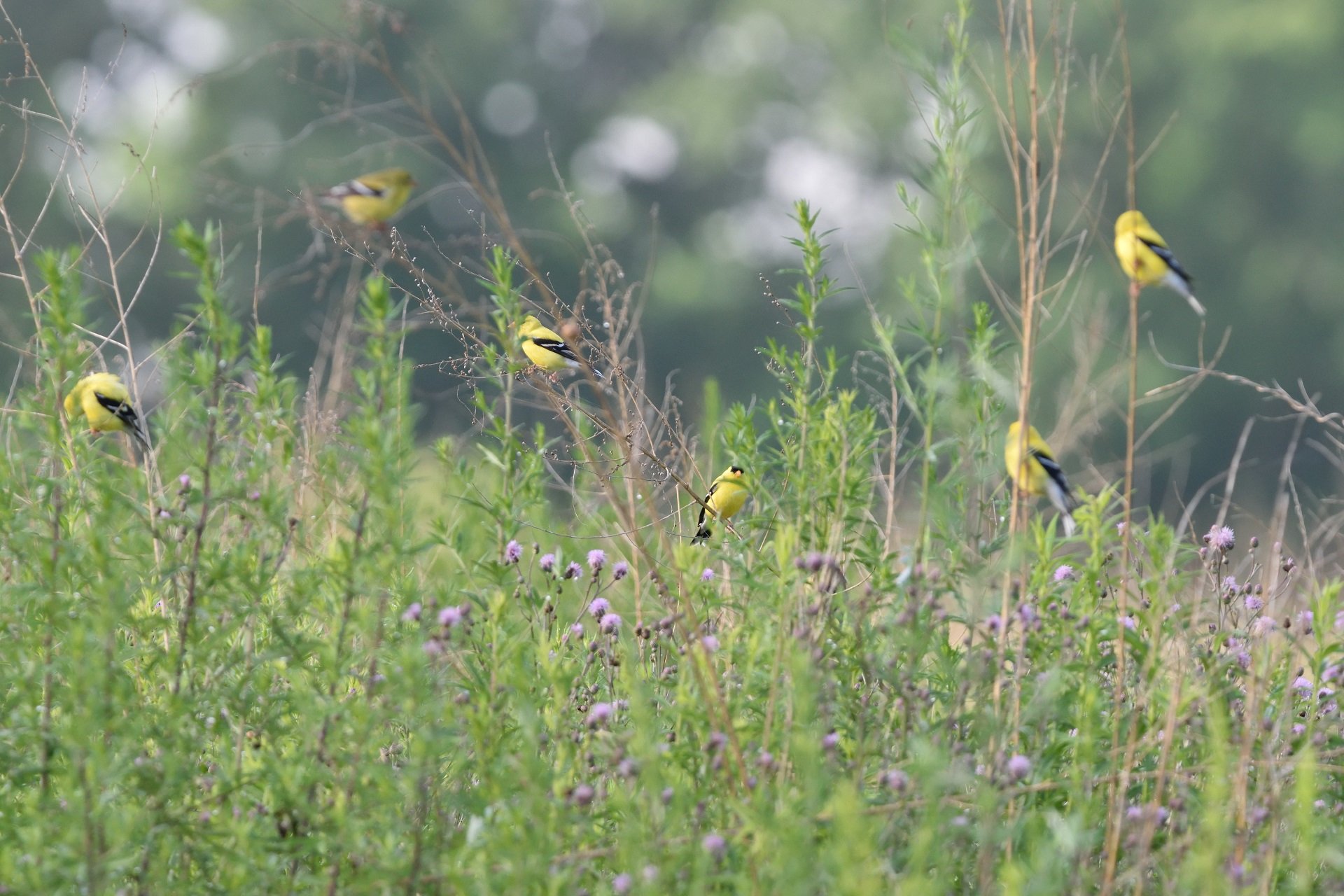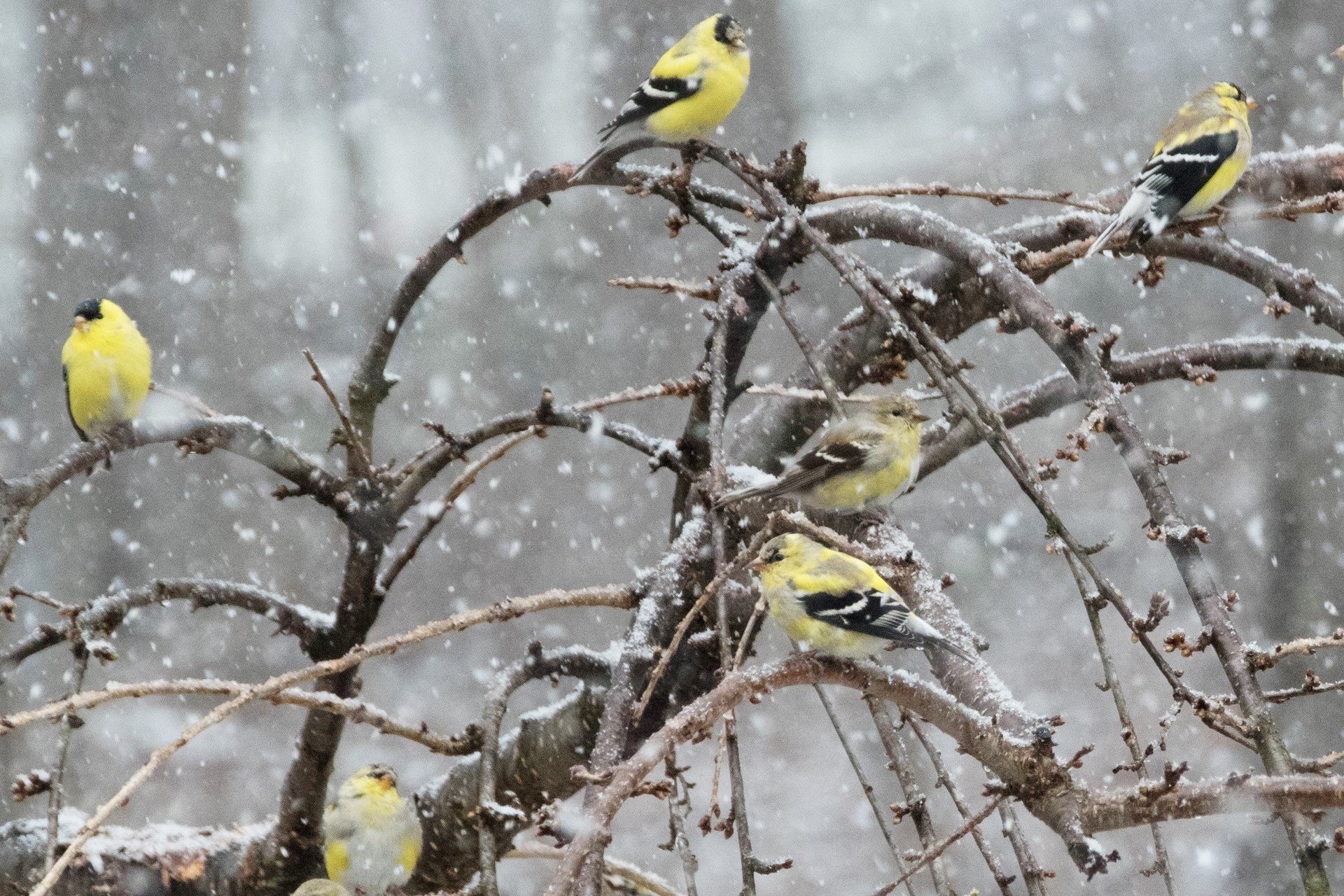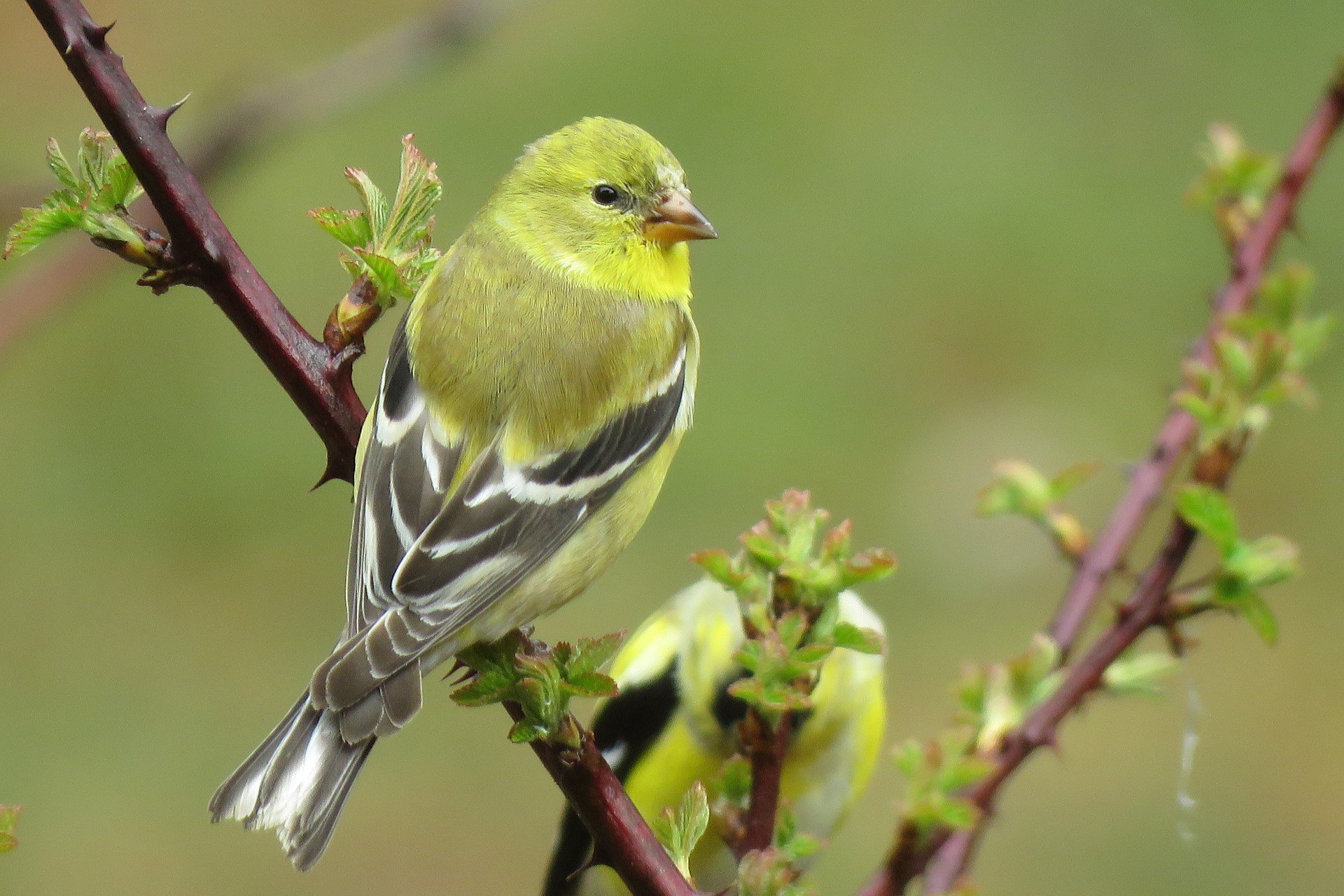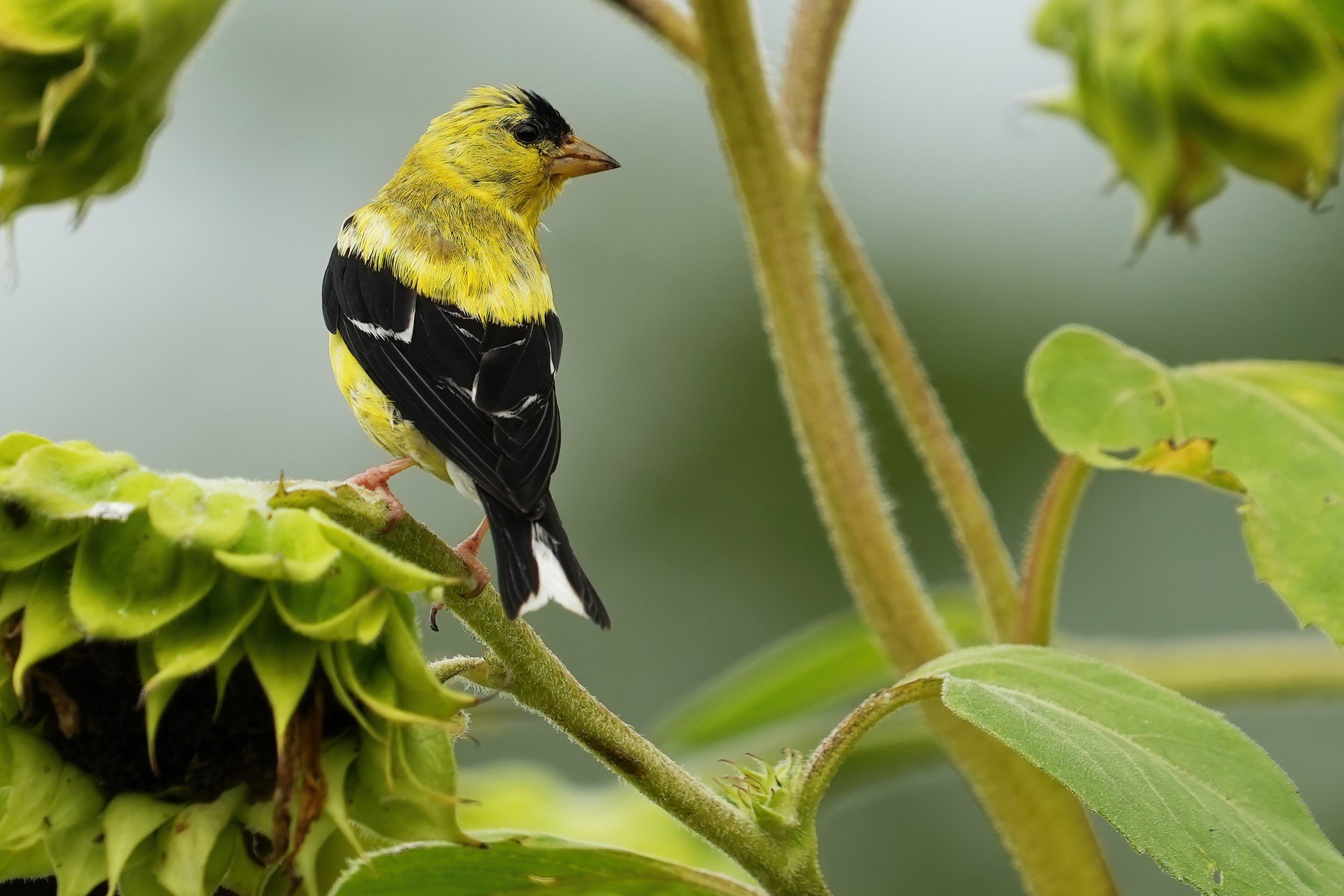American Goldfinches
Sometimes called the "wild canary" of the Americas, the American Goldfinch's (spinus tristis) distinctive sunshine-yellow plumage fades in winter to an understated palette of gray, brown, and buff.
These diminutive finches are common visitors to bird feeders across the state, and so the well-prepared birder should be familiar with their varied plumages.
How to Identify the American Goldfinch
Regardless of season, several traits of goldfinches remain constant. American Goldfinches are small (5") seed-eating birds with short, pointed, conical bills and wings that are noticeably darker than their bodies.
Winter vs Summer Plumage
In spring and summer, the male is canary-yellow with coal black wings, tail, and cap. The female lacks the cap and is colored in more subdued shades of butter yellow and olive.
In winter, the male retains some yellow around the face, throat, and shoulder, but both sexes are primarily grayish-brown. Identify them by their size, shape, and dark wings, which often show one or two clear "wing bars."
American Goldfinch Behavior
Goldfinches often travel in flocks, and they have a recognizable "bouncing" style of flight, resulting from their tendency to hold their wings tight against their body for a second or two between bouts of flapping.
What Do American Goldfinches Eat?
Particularly during winter, multiple males and females often feed together at a single feeder. American Goldfinches are particularly fond of thistle seed (also called nyjer or nyger).
American Goldfinch Song
The song of the American Goldfinch is a variable sweet warble, and the species has a distinctive four-note flight call given as they "bounce" through the air: po-ta-to chip, po-ta-to chip.
Where Can I See American Goldfinches?
From the shores of Nantucket to the high hills of the Berkshires, the American Goldfinch can be found breeding just about everywhere in Massachusetts. Despite its delicate appearance, the humble goldfinch is a tenacious survivor.
How Mass Audubon is Supporting Birds in Massachusetts
Mass Audubon works at our wildlife sanctuaries and beyond to ensure that the nature of Massachusetts continues to thrive. By scientifically monitoring Massachusetts birdlife, Mass Audubon informs important conservation decisions and launches targeted initiatives to help at-risk species. In addition, fostering healthy habitats, supporting native species, and educating people about the importance of nature conservation is critical to our success. Learn more about our work
How You Can Support Birds in Massachusetts
Mass Audubon supports birds like the American Goldfinch every day, but we couldn’t do it without the support of our 160,000+ members.
Help us support the American Goldfinch, and birds like them, by becoming a member today.
Upcoming Bird Programs
See MoreWinter Birds: Sparrows
-
Stony Brook Wildlife Sanctuary, Norfolk
-
Wednesday, January 22
9:00-10:30am
Adults
Wednesday Morning Birding
-
Newburyport and vicinity
-
Wednesday, January 22
9:30am-12:30pm
Adults
Owls of Massachusetts
-
Plymouth Public Library, Manomet Branch, Plymouth
-
Thursday, January 23
5:30-6:30pm
Adults & Families - 6 - 17
Stay Connected
Don't miss a beat on all the ways you can get outdoors, celebrate nature, and get involved.






